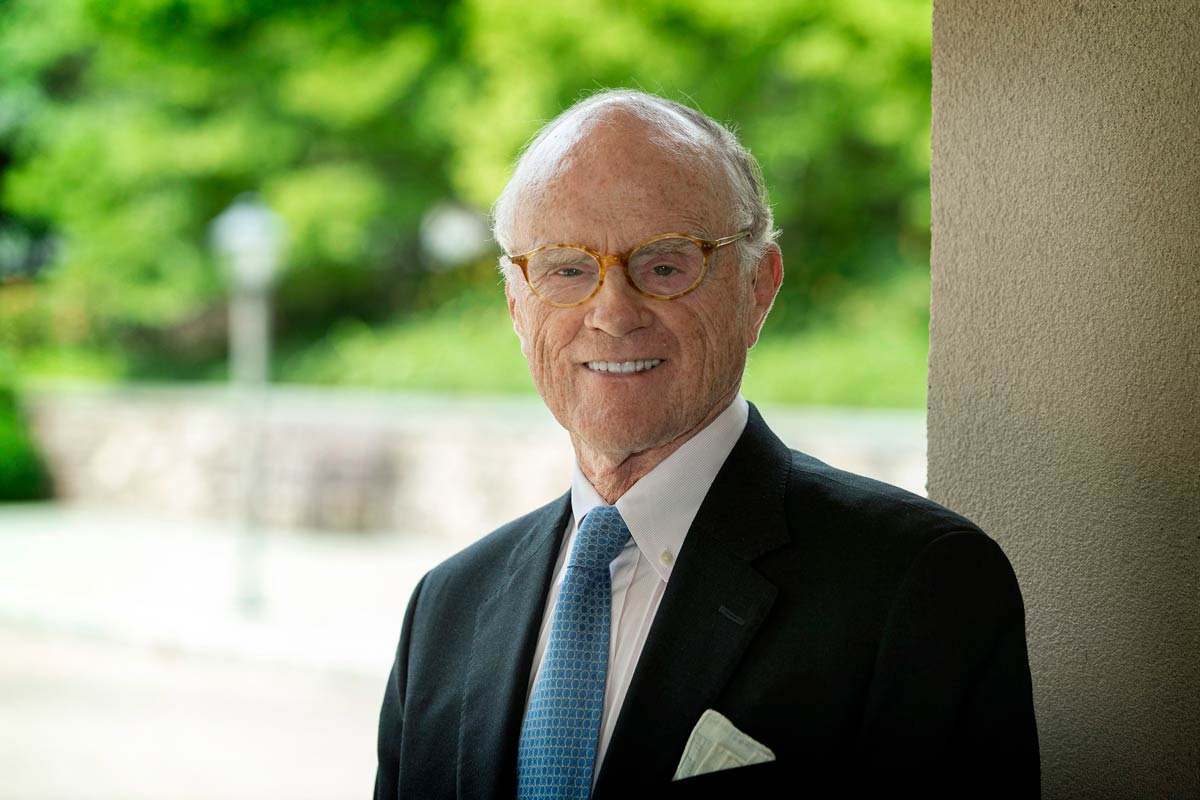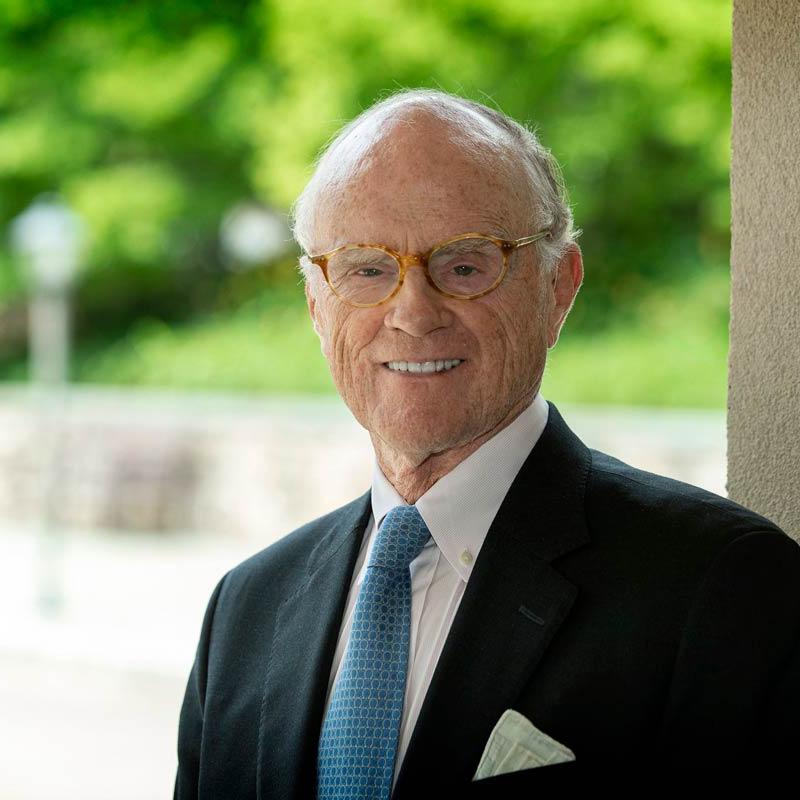Whitt Clement has seen a lot in his eight years as a member of the University of Virginia Board of Visitors, which includes the last two serving as rector.
His time on the governing board has coincided with dizzying change and growing challenges across higher education – and plenty of UVA-specific issues and opportunities as well. As he prepares for his final meeting as rector in June, Clement sat down with UVA Today to reflect on the University today, and the progress he has seen.
Q. What stands out to you most from your time on the University board?
A. During this time, every institution has had to deal, to some degree, with the same set of challenges, including the COVID-19 pandemic, political polarization exacerbated by social media, and growing concerns about free expression on campuses. Closer to home, UVA has dealt with many serious issues, including the evolution of our honor system, a rise in public safety concerns in our region and, most notably, the November shooting that took the lives of three of our students and deeply affected many others.
We’ve also made tremendous progress. Our fine president, Jim Ryan, and his team have steered the University through uncertain times, maintaining our standing as one of the best public institutions in the nation – and one of the best values in all of higher education. Every year has brought a new class of incredibly talented and diverse students, who are eager to collaborate with some of the best faculty anywhere in the world. We have continued to serve Virginia families through UVA Health, including our expanded presence in Northern Virginia, and we continue to develop new knowledge and solve human problems through cutting-edge research. We have continued to solidify the financial standing of the University through effective management and the success of our Honor the Future capital campaign.
These eight years haven’t always been easy, but it is hard to argue with the progress over that time.
Q. Free speech is a topic of significant focus on campuses all over the nation. How has the University approached the issue in your time?
A. Every college and university is grappling with how to protect and encourage free expression inside and outside the classroom at a time when political division and social media have made it easier than ever to attack or recriminate against each other.
UVA has responded in multiple ways. First, President Ryan created a Committee on Free Expression and tasked it with formulating a statement reflecting the University’s commitment to an environment where we can all speak and exchange ideas freely. I am proud that the board unanimously approved that statement, as well as a separate statement developed in cooperation with Gov. Glenn Youngkin and our sister institutions across the commonwealth.
More practically, the University has taken deliberate steps to welcome and foster free expression across our Grounds, whether by supporting the right of community members to peacefully demonstrate in support of, or in opposition to, causes local and global; designing new curriculum and programming focused on productive exchange of opposing ideas; or welcoming speakers from across the political spectrum, including former Vice President Mike Pence, “Just Mercy” author Bryan Stevenson, and many others.
Thomas Jefferson charged this institution to be “not afraid to follow truth wherever it may lead,” and we have tried our best to meet that calling. I hope the administration and our faculty will seek more ways to encourage civil discourse in the midst of differing viewpoints.












